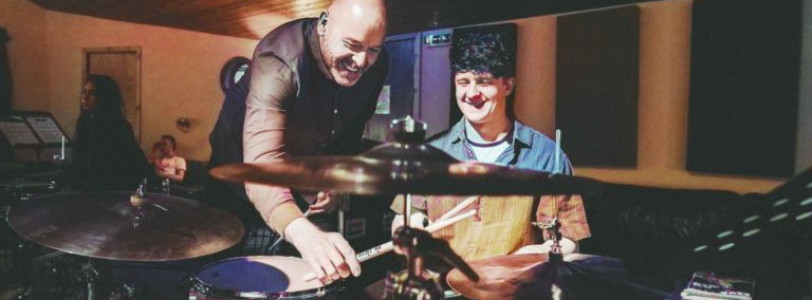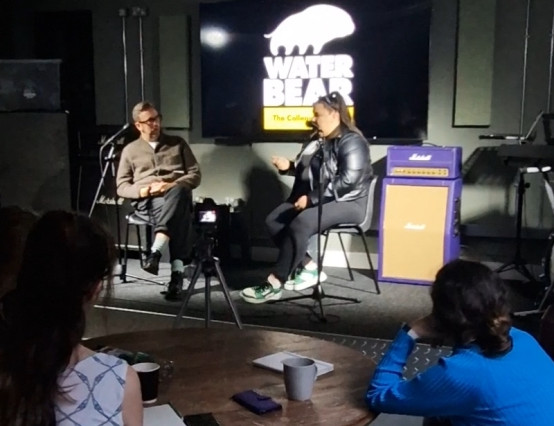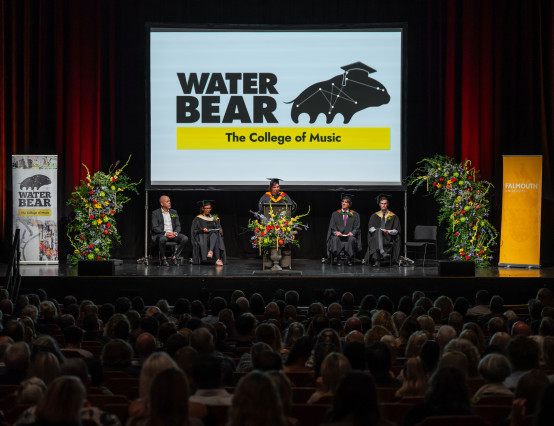Musicians today can leverage many income streams to support a career as an independent musician. WaterBear, The College of Music, explores several areas below and further discusses how a music degree can help to build that DIY career.
Live Performances
Live performances can be a significant source of income for independent musicians. This includes gigs, concerts, festivals, and other live events. Musicians can earn money from ticket sales, merchandise sales, and performance fees.
Digital Music Sales
Independent musicians can sell their music digitally through online music stores such as iTunes, Amazon Music, and Google Play. This can provide a steady stream of income through album and single sales.
Streaming Royalties
With the rise of music streaming platforms such as Spotify, Apple Music, and Tidal, streaming royalties have become an important income stream for independent musicians. While the royalty rates for streams are relatively low, the volume of streams can add up and provide a sustainable income.
Merchandise Sales
Merchandise sales can provide an additional source of income for independent musicians. This includes items such as t-shirts, posters, and other branded merchandise.
Sync Licensing
Independent musicians can earn money through sync licensing, which involves licensing their music for use in films, TV shows, commercials, and other media. This can provide a significant source of income, especially for musicians with a distinctive sound or style.
Patreon and Crowdfunding
Crowdfunding platforms such as Kickstarter and Patreon can help independent musicians raise funds to support their careers. Fans can contribute to these campaigns in exchange for exclusive content, early access to music, and other rewards.
These are just a few examples of the income streams available to DIY independent musicians. By leveraging multiple income streams and building a loyal fan base, independent musicians can generate a sustainable income and build a successful career in the music industry.
How can a degree in music help support generating a sustainable income?
A degree in music can support an independent career in music by providing students with a strong foundation in music theory, performance, and composition. This foundation can help musicians develop the skills they need to create high-quality music and stand out in a crowded music industry. Additionally, a degree in music can provide musicians with a broad range of knowledge and skills that can be useful for generating a sustainable income.
Here are some specific ways that a degree in music can support an independent career in music:
1. Technical Skills: A degree in music can provide musicians with technical skills in music production, recording, and engineering. These skills can help musicians produce high-quality and innovative recordings that stand out in the crowded music industry.
2. Business Skills: Many music degree programs include courses in music business, marketing, and entrepreneurship. These courses can help musicians develop the skills they need to market their music, build their brand, and create income.
3. Networking Opportunities: The opportunities with networking whilst studying a music degree are immense. You are able to connect with recognised industry professionals and fellow musicians, who’s connections can be essential for building a career in the music industry.
4. Performance Opportunities: Often, music degree programs provide students with ample opportunities to perform and showcase their music. This can help musicians build their fan base and generate income through live performances, as well as confront any performance-anxiety related issues.
5. Access to Resources: A degree in music can provide musicians with access to resources such as recording studios, rehearsal spaces, and musical instruments. These resources can be costly for independent musicians, so having access to them can be a valuable asset. With an abundance of new instruments and software to make use of, students are way less restricted and creativity is encouraged.
Overall, a degree in music can provide independent musicians with a solid foundation of knowledge, skills, and resources that can be essential for building a successful career in music. By leveraging these resources and building a strong fan base, independent musicians can generate a sustainable income and achieve their career goals.









0 Comments